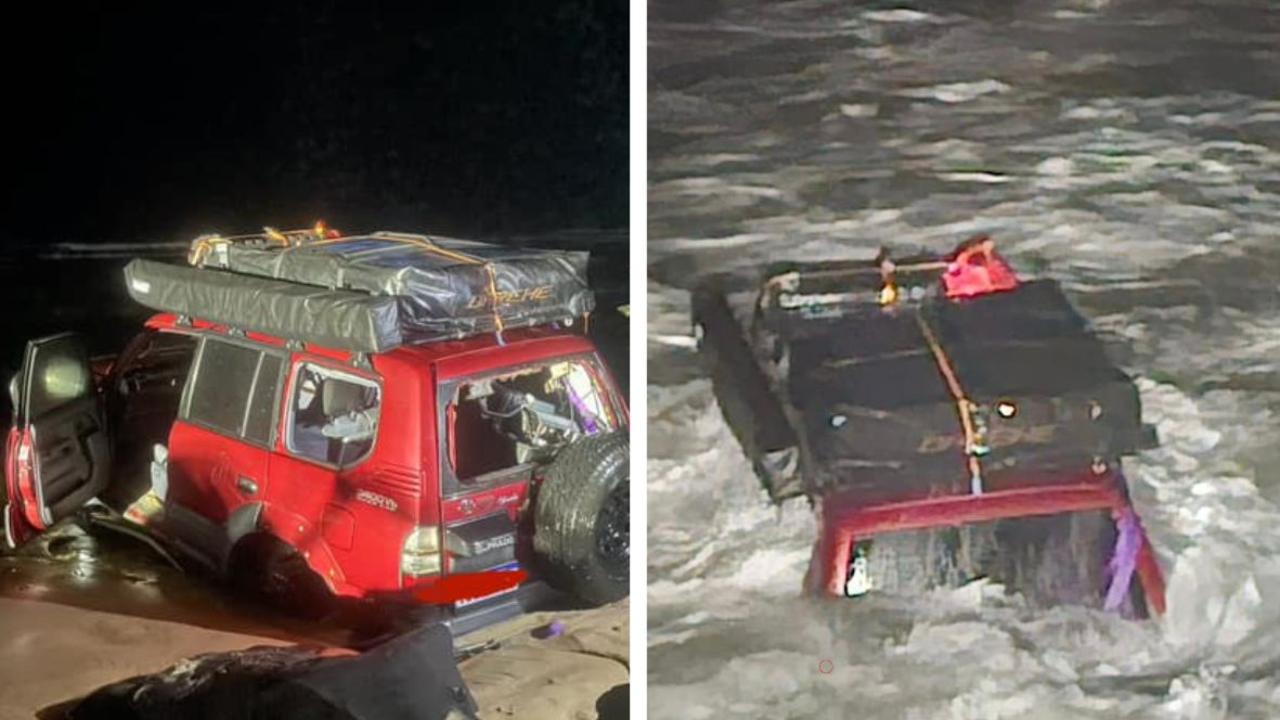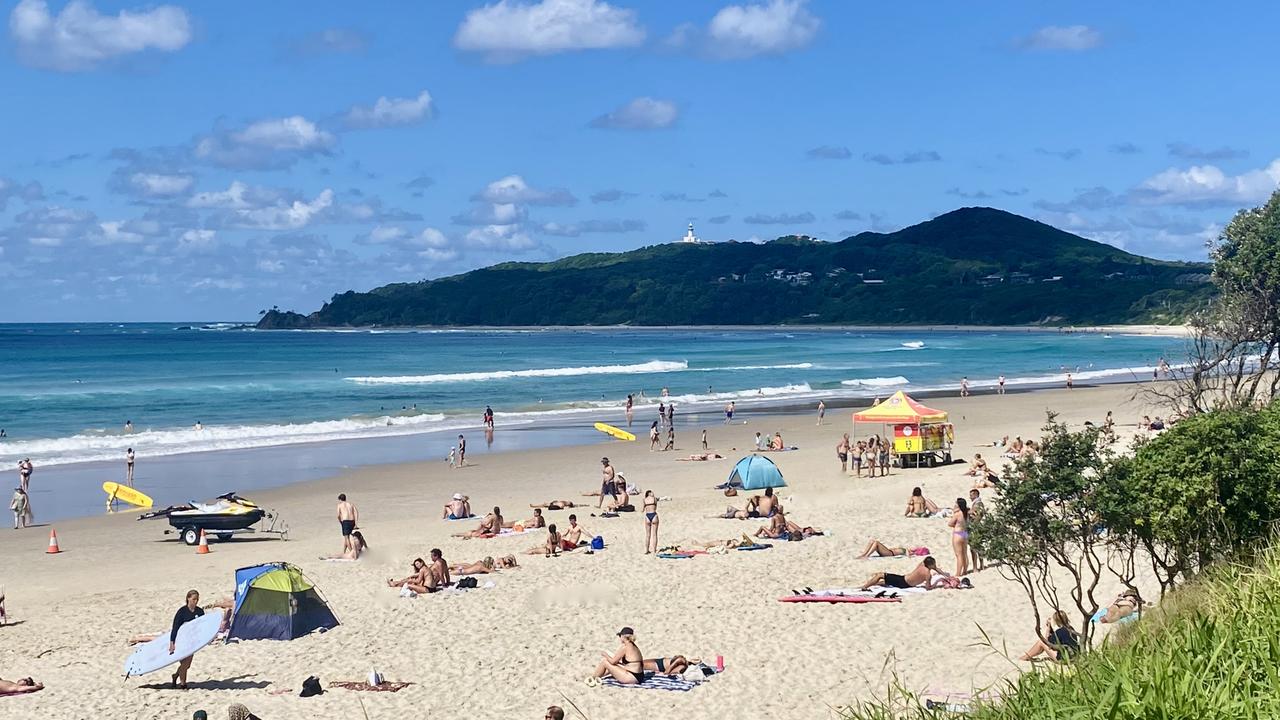Where to go on a camping adventure with your dog — and how to keep them safe
THESE are the best Aussie spots to go on a camping adventure with your pooch — and what you should do to make sure it’s the best trip possible.
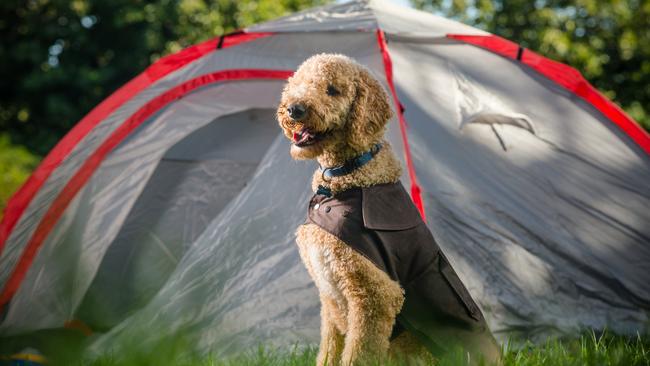
CAMPING is great, and camping with a dog is even better.
There are plenty of camp sites across Australia that are dog-friendly, but before you check them out, there are a few things you need to do to make sure your pooch has a fun and safe time on the trip.
And the first things are to make sure your dog has an ID tag, has been microchipped and that you’ve taken out pet insurance, PETstock vet Rod Sharpin said.
“Before you head off, ensure your pet has a current ID tag and has been microchipped, which will help identify them if they become lost. Make sure your mobile phone details are registered correctly with your dog’s microchip so that you can be contacted if your pet goes missing,” Dr Sharpin said.
It might be second-nature to take out travel insurance before a holiday of your own, but pet insurance is just as important if you’re hitting the road with your pet.
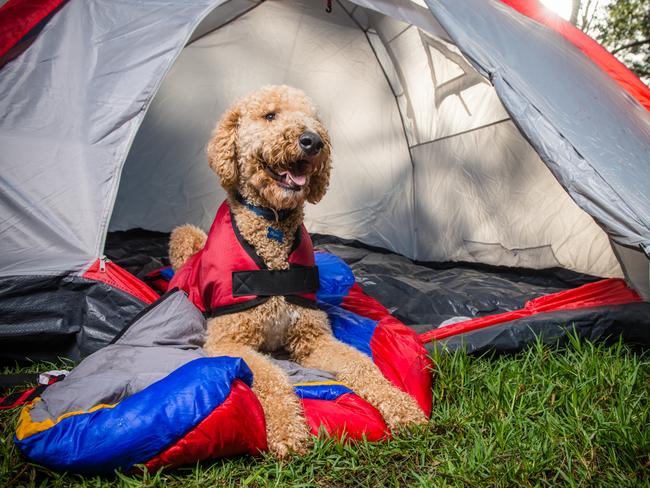
“Unfamiliar surroundings increase the risk of your dog getting injured, being bitten by an insect or reptile, or eating something by mistake, which makes pet insurance a must,” Dr Sharpin said.
BIGGEST DANGERS TO YOUR DOG
And there are plenty of things that could go wrong for your canine pal.
One of them is ticks, which are common in Australia and usually found in dense bush and long grass. Arrange flea and tick protection at your local vet clinic before you leave, and keep an eye out for ticks on your trip, Dr Sharpin said.
“There are two common species of ticks seen in Australia, the most notable being the paralysis tick,” he said.
“Most cases of tick poisoning occur between June and January, however cases are seen throughout the entire year.
“Paralysis ticks burrow into your pet’s skin and feed on blood. During feeding, the tick’s toxic saliva is injected into the pet, which causes poisoning. Ticks are very small when they first attach, which means they often go unnoticed until days later when the tick has fed and is engorged, or when symptoms begin.
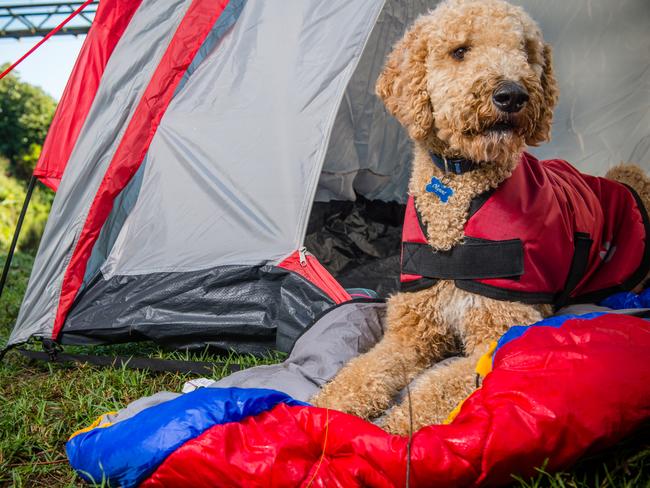
“Symptoms of tick poisoning include changes to bark, lethargy, vomiting and muscular paralysis, usually starting in the hind legs. In progressed cases, the pet can be unable to stand and struggle to breathe.
“If you suspect your buddy may have tick poisoning or if you find a tick on your pet, seek veterinary attention immediately.”
A BASIC FIRST-AID RUN-DOWN
PETstock recommends that if something causes your dog to bleed, apply pressure with your hands or a bandage.
If your dog suffers a burn, apply running water and a cool pack. If they’re having trouble breathing, that there are no foreign objects in your dog’s mouth.
Before you leave for your trip, be sure to pack a first-aid kit, making sure you include a travel water bottle to prevent dehydration on long walks, and a towel that can be used for a variety of situation, including as a bandage, sling or even stretcher to carry an ill pet.
Other essentials include bandages and dressings to cover wounds, iodine based antiseptic cream, gloves, scissors, and tweezers to remove splinters, grass seeds or ticks.
Saline should be packed in case you need to wash your pet’s eyes, shampoo for a general wash and pet sunscreen to protect hairless areas like around the nose and on the belly.
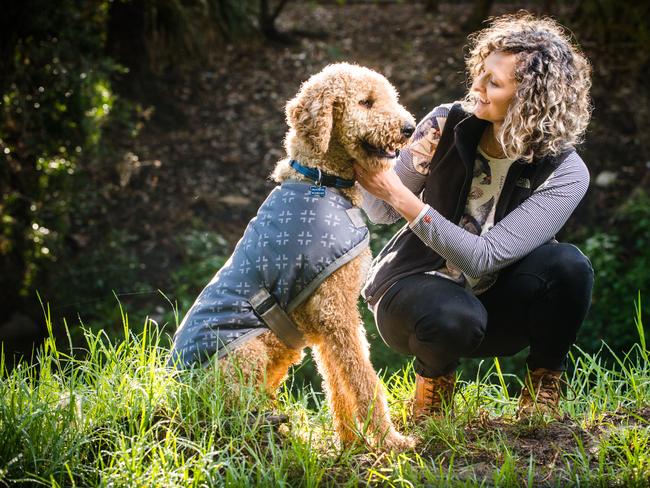
EXTRA SAFETY TIPS
If you’re enjoying a roaring fire at your campsite, it’s a good idea to make sure your dog is far enough from the flames so he or she doesn’t get burnt by a random spark. It’s also wise to put your dog upwind from the smoke.
Keep your dog away from the extinguished fire pit and train them to stay away, as it can retain heat as well as leftover debris like food and foil wrap, which are unsafe for your pooch.
Keep hazards like fish hooks, kebab sticks and firelighters out of their way, by storing or disposing of them carefully.
And make sure your dog avoids drinking stagnant water and is kept a safe distance from toxic plants. (Find out more about poisonous plants here.)
If the nights get chilly, keep your dog warm with a jacket, travel bed, warm cushions and blankets, and when you’re packing, make sure to grab your pet’s collar and lead, medications and a supply of food for the duration of the trip, food and drink bowls that are safe for travelling, poop bags, grooming equipment, and a crate to secure your dog in the car — with enough water for the journey.
BEST PLACES TO VISIT
Many Australian camping grounds allow dogs as long as they are on a lead, but it’s a good idea to call ahead and ask about any restrictions.
If you’re in need of some inspiration, here are 10 of the best dog-friendly campsites in NSW and Victoria, according to PETstock.
VICTORIA
1. Johanna Beach
Three hours out of Melbourne and part of the Great Otway National Park on the
Great Ocean Road, this is a large, open, grassy camping area nestled among the sand dunes and
adjacent to the surf beach.
2. Loch Valley (The Poplars)
This camping area is around two hours out of Melbourne, close to Mount Baw Baw National Park, and you can camp beside the Loch River. Take your buddy for a long walk along the river among the tall trees and ferns.
3. Jerusalem Creek
Part of Lake Eildon National Park, this spot is 150km north east of Melbourne. It’s situated on the shores of Lake Eildon, with bushwalking, boating and fishing popular activities. Be sure to fit a dog flotation vest on your dog before you head out on the boat.
4. Lake Hindmarsh Reserve
This spot is about five hours out of Melbourne, near the Grampians. When filled, Lake Hindmarsh is the perfect location for water skiing, fishing, yabbying and boating, with red river
gums and birdlife natural highlights.
5. Howqua Hills Historical Area
Three and a half hours out of Melbourne, near Mansfield, this old gold mining area is set on the beautiful Howqua River and is popular for picnics, horse riding, bushwalking and four-wheel-driving.
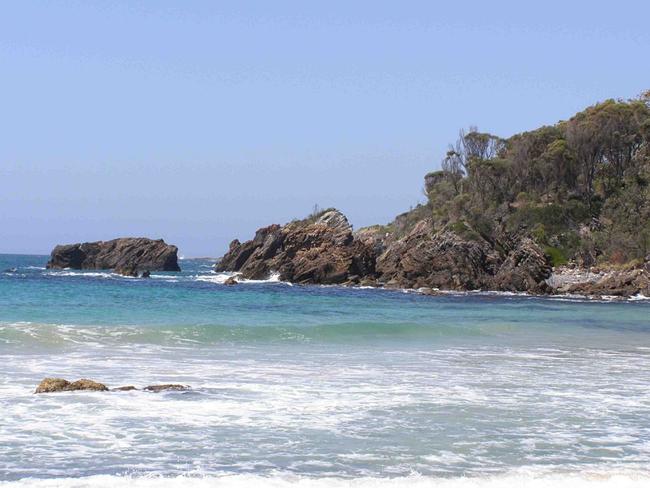
NSW
6. Mystery Bay Camp Ground
This spot is on the South Coast of NSW, just over five hours from Sydney, and right on the ocean. It also boasts turquoise beaches, rocky coves and spectacular views over cliff headlands.
7. Coachwood Camping Area
This camping area is in Chinchester State Forest, three-and-a-half hours north west of Sydney. This small clearing on the Telegherry River offers a cool, quiet rainforest setting with a lagoon to swim in.
8. Riverwood Downs
Riverwood Downs is on the banks of the Karuah River, in the foothills of the Barrington Tops National Park, around two and a half hours north of Sydney. Enjoy shady walking trails, tall mountains and cool, fresh mountain pools.
9. Turon Gates campsite
This spot is in a valley in the Blue Mountains on the Turon River, only two and a half hours from Sydney. Pets are allowed off-lead, so long as they are kept under control. You and your pet can go for a mountain bike ride, go bird watching, panning for gold and swimming in the river.
10. Wollondilly River Station
In the Southern Highlands of NSW, around three hours south west of Sydney, this spot is great for pets, which are allowed off-lead as long as they are kept under control at all times. It offers fishing, oven cooking demonstrations, swimming and bushwalking.

